- Home
- Roald Dahl
Matilda
Matilda Read online
For Michael and Lucy
Some reviews of Matilda
'Mischievous though she may be, there could hardly be a better heroine for today's children. Matilda is super-intelligent and, above all, a voracious reader!'
- The Times
'Matilda is the nation's favourite children's book, according to a poll of more than ten thousand people conducted by Waterstone's and BBC1's Bookworm
programme' - Sunday Times
'One of the most popular children's books ever' - Ottaker's Top Ten Favourite Children's Books survey
'Roald Dahl and Quentin Blake have made an important and lasting contribution to children's literature'
- Guardian
Other books by Roald Dahl
THE BFG
BOY: TALES OF CHILDHOOD
BOY and GOING SOLO
CHARLIE AND THE CHOCOLATE FACTORY
CHARLIE AND THE GREAT GLASS ELEVATOR
THE COMPLETE ADVENTURES OF CHARLIE AND MR WILLY WONKA DANNY THE CHAMPION OF THE WORLD
GEORGE'S MARVELLOUS MEDICINE
GOING SOLO
JAMES AND THE GIANT PEACH
THE WITCHES
For younger readers
THE ENORMOUS CROCODILE
ESIO TROT
FANTASTIC MR FOX
THE GIRAFFE AND THE PELLY AND ME
THE MAGIC FINGER
THE TWITS
Picture books
DIRTY BEASTS(with Quentin Blake)
THE ENORMOUS CROCODILE(with Quentin Blake)
THE GIRAFFE AND THE PELLY AND ME (with Quentin Blake)
THE MINPINS (with Patrick Benson)
REVOLTING RHYMES (with Quentin Blake)
Plays
THE BFG: PLAYS FOR CHILDREN (Adapted by David Wood)
CHARLIE AND THE CHOCOLATE FACTORY: A PLAY(Adapted by Richard George)
FANTASTIC MR FOX: A PLAY(Adapted by Sally Reid)
JAMES AND THE GIANT PEACH: A PLAY (Adapted by Richard George)
THE WITCHES: PLAYS FOR CHILDREN(Adapted by David Wood)
Teenage fiction
THE GREAT AUTOMATIC GRAMMATIZATOR AND OTHER STORIES
RHYME STEW
SKIN AND OTHER STORIES
THE VICAR OF NIBBLESWICKE
THE WONDERFUL STORY OF HENRY SUGAR AND SIX MORE
ROALD DAHL
Matilda
Illustrated by Quentin Blake
PUFFIN BOOKS
PUFFIN BOOKS
Published by the Penguin Group
Penguin Books Ltd, 80 Strand, London WC2R 0RL, England
Penguin Putnam Inc., 375 Hudson Street, New York, New York 10014, USA
Penguin Books Australia Ltd, 250 Camberwell Road, Camberwell, Victoria 3124, Australia
Penguin Books Canada Ltd, 10 Alcorn Avenue, Toronto, Ontario, Canada M4V 3B2
Penguin Books India (P) Ltd, 11 Community Centre, Panchsheel Park, New Delhi - 110 017, India
Penguin Books (NZ) Ltd, Cnr Rosedale and Airborne Roads, Albany, Auckland, New Zealand
Penguin Books (South Africa) (Pty) Ltd, 24 Sturdee Avenue, Rosebank 2196, South Africa
Penguin Books Ltd, Registered Offices: 80 Strand, London WC2R 0RL, England
www.penguin.com
First published by Johnathan Cape Ltd 1988
Published in Puffin Books 1989
Published in Puffin Modern Classics 2003
9
Text copyright (c) Roald Dahl Nominee Ltd, 1988
Illustrations copyright (c) Quentin Blake, 1988
Introduction copyright (c) Julia Eccleshare, 2003
All rights reserved
The author and publisher are grateful to the Trustees of the Estate of Dylan Thomas for permission to quote lines from 'In Country Sleep', from The Poems by Dylan Thomas, published by J. M. Dent & Sons
Except in the United States of America, this book is sold subject to the condition that it shall not, by way of trade or otherwise, be lent, re-sold, hired out, or otherwise circulated without the publisher's prior consent in any form of binding or cover other than that in which it is published and without a similar condition including this condition being imposed on the subsequent purchaser
British Library Cataloguing in Publication Data A CIP catalogue record for this book is available from the British Library
ISBN: 978-0-14-192945-3
Introduction
by Julia Eccleshare
Puff in Modern Classics series editor
How strange to be a child who loves books and reading, but who is criticized for it by her parents; how unusual to find a pupil who can do maths perfectly, yet is accused of cheating by her father when she answers a question correctly. Such a child is Matilda.
Roald Dahl's Matilda is a story of enormous warmth, celebrating intelligence, good teaching and, above all, a love of reading. And all of it is conveyed with the hallmarks of Dahl's storytelling: larger than life characters, scenes of comic excess that are sometimes tinged with savage overtones and just a little bit of magic to allow for unusual possibilities.
The characters - from Matilda's vile and despicable parents, Mr and Mrs Wormwood, and her villainous headmistress, the terrifying Miss Trunchbull, to the gloriously sweet-natured Miss Honey and Matilda - are as representative of the good and the bad as any of Dahl's creations. Their various faults are as ridiculous as their virtues are too good to be true.
And yet, through them, Dahl does, more than entertain. Juxtaposing these extremes, especially the underhand dealings of the Wormwoods and the terrifying scenes of humiliation played out by Miss Trunchbull (only Dahl could turn a chocolate cake into a weapon of torture!), he makes a barbed commentary on some of the things that he most disliked about contemporary society. The bullying of children by adults stands at the top of the list.
For a generation and more, Roald Dahl has consistently topped the polls of children's favourite authors. His ability to speak directly to his readers, siding with them against adults where necessary while entertaining them with magical possibilities, has given him a unique position as a creator of empowering fantasies.
Contents
The Reader of Books
Mr Wormwood, the Great Car Dealer
The Hat and the Superglue
The Ghost
Arithmetic
The Platinum-blond Man
Miss Honey
The Trunchbull
The Parents
Throwing the Hammer
Bruce Bogtrotter and the Cake
Lavender
The Weekly Test
The First Miracle
The Second Miracle
Miss Honey's Cottage
Miss Honey's Story
The Names
The Practice
The Third Miracle
A New Home
The Reader of Books
It's a funny thing about mothers and fathers. Even when their own child is the most disgusting little blister you could ever imagine, they still think that he or she is wonderful.
Some parents go further. They become so blinded by adoration they manage to convince themselves their child has qualities of genius.
Well, there is nothing very wrong with all this. It's the way of the world. It is only when the parents begin telling us about the brilliance of their own revolting offspring, that we start shouting, 'Bring us a basin! We're going to be sick!'
School teachers suffer a good deal from having to listen to this sort of twaddle from proud parents, but they usually get their own back when the time comes to write the end-of-term reports. If I were a teacher I would cook up some real scorchers for the children of doting parents. 'Your son Maximilian,' I would write, 'is a total wash-out. I hope you have a family business you can push him into when he leaves school because he sure as heck won't get a job any
where else.' Or if I were feeling lyrical that day, I might write, 'It is a curious truth that grasshoppers have their hearing-organs in the sides of the abdomen. Your daughter Vanessa, judging by what she's learnt this term, has no hearing-organs at all.'
I might even delve deeper into natural history and say, 'The periodical cicada spends six years as a grub underground, and no more than six days as a free creature of sunlight and air. Your son Wilfred has spent six years as a grub in this school and we are still waiting for him to emerge from the chrysalis.' A particularly poisonous little girl might sting me into saying, 'Fiona has the same glacial beauty as an iceberg, but unlike the iceberg she has absolutely nothing below the surface,' I think I might enjoy writing end-of-term reports for the stinkers in my class. But enough of that. We have to get on.
Occasionally one comes across parents who take the opposite line, who show no interest at all in their children, and these of course are far worse than the doting ones. Mr and Mrs Wormwood were two such parents. They had a son called Michael and a daughter called Matilda, and the parents looked upon Matilda in particular as nothing more than a scab. A scab is something you have to put up with until the time comes when you can pick it off and flick it away Mr and Mrs Wormwood looked forward enormously to the time when they could pick their little daughter off and flick her away, preferably into the next county or even further than that.
It is bad enough when parents treat ordinary children as though they were scabs and bunions, but it becomes somehow a lot worse when the child in question is extra- ordinary, and by that I mean sensitive and brilliant. Matilda was both of these things, but above all she was brilliant. Her mind was so nimble and she was so quick to learn that her ability should have been obvious even to the most half-witted of parents. But Mr and Mrs Wormwood were both so gormless and so wrapped up in their own silly little lives that they failed to notice anything unusual about their daughter. To tell the truth, I doubt they would have noticed had she crawled into the house with a broken leg.
Matilda's brother Michael was a perfectly normal boy, but the sister, as I said, was something to make your eyes pop. By the age of one and a half her speech was perfect and she knew as many words as most grown-ups. The parents, instead of applauding her, called her a noisy chatterbox and told her sharply that small girls should be seen and not heard.
By the time she was three, Matilda had taught herself to read by studying newspapers and magazines that lay around the house. At the age of four, she could read fast and well and she naturally began hankering after books. The only book in the whole of this enlightened household was something called Easy Cooking belonging to her mother, and when she had read this from cover to cover and had learnt all the recipes by heart, she decided she wanted something more interesting.
'Daddy,' she said, 'do you think you could buy me a book?'
'A book?' he said. 'What d'you want a flaming book for?'
'To read, Daddy'
'What's wrong with the telly, for heaven's sake? We've got a lovely telly with a twelve-inch screen and now you come asking for a book! You're getting spoiled, my girl!'
Nearly every weekday afternoon Matilda was left alone in the house. Her brother (five years older than her) went to school. Her father went to work and her mother went out playing bingo in a town eight miles away. Mrs Wormwood was hooked on bingo and played it five afternoons a week. On the afternoon of the day when her father had refused to buy her a book, Matilda set out all by herself to walk to the public library in the village. When she arrived, she introduced herself to the librarian, Mrs Phelps. She asked if she might sit awhile and read a book. Mrs Phelps, slightly taken aback at the arrival of such a tiny girl unaccompanied by a parent, nevertheless told her she was very welcome.
'Where are the children's books please?' Matilda asked.
'They're over there on those lower shelves,' Mrs Phelps told her. 'Would you like me to help you find a nice one with lots of pictures in it?'
'No, thank you,' Matilda said. 'I'm sure I can manage.'
From then on, every afternoon, as soon as her mother had left for bingo, Matilda would toddle down to the library. The walk took only ten minutes and this allowed her two glorious hours sitting quietly by herself in a cosy corner devouring one book after another. When she had read every single children's book in the place, she started wandering round in search of something else.
Mrs Phelps, who had been watching her with fascination for the past few weeks, now got up from her desk and went over to her. 'Can I help you, Matilda?' she asked.
'I'm wondering what to read next,' Matilda said. 'I've finished all the children's books.'
'You mean you've looked at the pictures?'
'Yes, but I've read the books as well.'
Mrs Phelps looked down at Matilda from her great height and Matilda looked right back up at her.
'I thought some were very poor,' Matilda said, 'but others were lovely. I liked The Secret Garden best of all. It was full of mystery. The mystery of the room behind the closed door and the mystery of the garden behind the big wall.'
Mrs Phelps was stunned. 'Exactly how old are you, Matilda?' she asked.
'Four years and three months,' Matilda said.
Mrs Phelps was more stunned than ever, but she had the sense not to show it. 'What sort of a book would you like to read next?' she asked.
Matilda said, 'I would like a really good one that grown-ups read. A famous one. I don't know any names.'
Mrs Phelps looked along the shelves, taking her time. She didn't quite know what to bring out. How, she asked herself, does one choose a famous grown-up book for a four-year-old girl? Her first thought was to pick a young teenager's romance of the kind that is written for fifteen-year-old school-girls, but for some reason she found herself instinctively walking past that particular shelf.
'Try this,' she said at last. 'It's very famous and very good. If it's too long for you, just let me know and I'll find something shorter and a bit easier.'
'Great Expectations,' Matilda read, 'by Charles Dickens. I'd love to try it.'
I must be mad, Mrs Phelps told herself, but to Matilda she said, 'Of course you may try it.'
Over the next few afternoons Mrs Phelps could hardly take her eyes from the small girl sitting for hour after hour in the big armchair at the far end of the room with the book on her lap. It was necessary to rest it on the lap because it was too heavy for her to hold up, which meant she had to sit leaning forward in order to read. And a strange sight it was, this tiny dark-haired person sitting there with her feet nowhere near touching the floor, totally absorbed in the wonderful adventures of Pip and old Miss Havisham and her cobwebbed house and by the spell of magic that Dickens the great story-teller had woven with his words. The only movement from the reader was the lifting of the hand every now and then to turn over a page, and Mrs Phelps always felt sad when the time came for her to cross the floor and say, 'It's ten to five, Matilda.'
During the first week of Matilda's visits Mrs Phelps had said to her, 'Does your mother walk you down here every day and then take you home?'
'My mother goes to Aylesbury every afternoon to play bingo,' Matilda had said. 'She doesn't know I come here.'
'But that's surely not right,' Mrs Phelps said. 'I think you'd better ask her.'
'I'd rather not,' Matilda said. 'She doesn't encourage reading books. Nor does my father.'
'But what do they expect you to do every afternoon in an empty house?'
'Just mooch around and watch the telly.'
'I see.'
'She doesn't really care what I do,' Matilda said a little sadly.
Mrs Phelps was concerned about the child's safety on the walk through the fairly busy village High Street and the crossing of the road, but she decided not to interfere.
Within a week, Matilda had finished Great Expectations which in that edition contained four hundred and eleven pages. 'I loved it,' she said to Mrs Phelps. 'Has Mr Dickens written any others?'
'A great number,' said the astounded Mrs Phelps. 'Shall I choose you another?'
Over the next six months, under Mrs Phelps's watchful and compassionate eye, Matilda read the following books:
Nicholas Nickleby by Charles Dickens
Oliver Twist by Charles Dickens
Jane Eyre by Charlotte Bronte
Pride and Prejudice by Jane Austen
Tess of the D'Urbervilles by Thomas Hardy
Gone to Earth by Mary Webb
Kim by Rudyard Kipling
The Invisible Man by H. G. Wells
The Old Man and the Sea by Ernest Hemingway
The Sound and the Fury by William Faulkner
The Grapes of Wrath by John Steinbeck
The Good Companions by J. B. Priestley
Brighton Rock by Graham Greene
Animal Farm by George Orwell
It was a formidable list and by now Mrs Phelps was filled with wonder and excitement, but it was probably a good thing that she did not allow herself to be completely carried away by it all. Almost anyone else witnessing the achievements of this small child would have been tempted to make a great fuss and shout the news all over the village and beyond, but not so Mrs Phelps. She was someone who minded her own business and had long since discovered it was seldom worth while to interfere with other people's children.
'Mr Hemingway says a lot of things I don't understand,' Matilda said to her. 'Especially about men and women. But I loved it all the same. The way he tells it I feel I am right there on the spot watching it all happen.'
'A fine writer will always make you feel that,' Mrs Phelps said. 'And don't worry about the bits you can't understand. Sit back and allow the words to wash around you, like music.'
'I will, I will.'
'Did you know,' Mrs Phelps said, 'that public libraries like this allow you to borrow books and take them home?'
'I didn't know that,' Matilda said. 'Could I do it?'
'Of course,' Mrs Phelps said. 'When you have chosen the book you want, bring it to me so I can make a note of it and it's yours for two weeks. You can take more than one if you wish.'

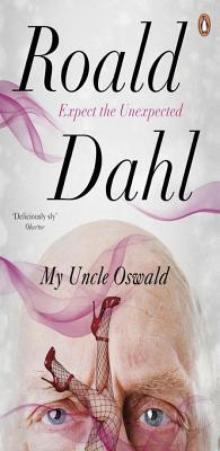 My Uncle Oswald
My Uncle Oswald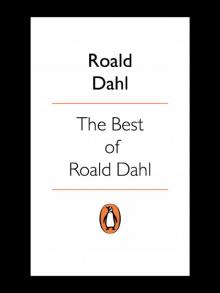 The Best of Roald Dahl
The Best of Roald Dahl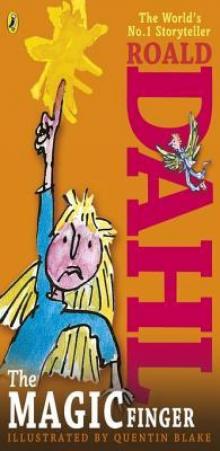 The Magic Finger
The Magic Finger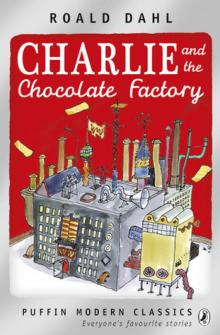 Charlie and the Chocolate Factory
Charlie and the Chocolate Factory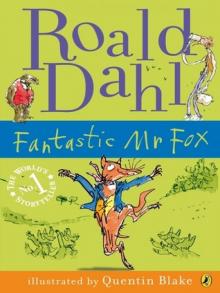 Fantastic Mr Fox
Fantastic Mr Fox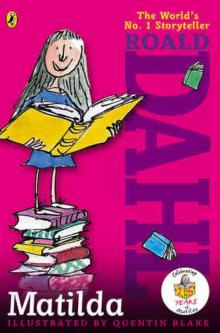 Matilda
Matilda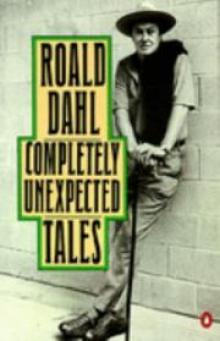 Completely Unexpected Tales: Tales of the Unexpected. More Tales of the Unexpected
Completely Unexpected Tales: Tales of the Unexpected. More Tales of the Unexpected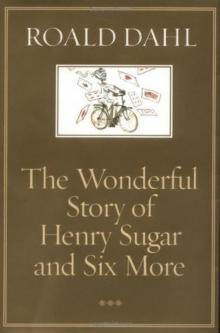 The Wonderful Story of Henry Sugar and Six More
The Wonderful Story of Henry Sugar and Six More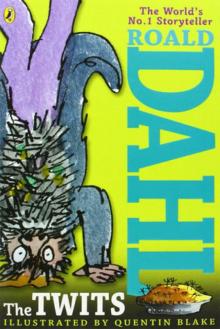 The Twits
The Twits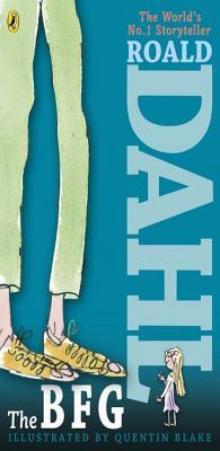 The BFG
The BFG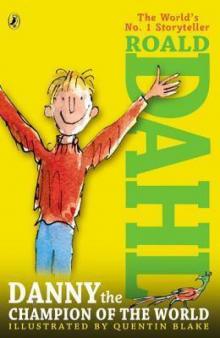 Danny the Champion of the World
Danny the Champion of the World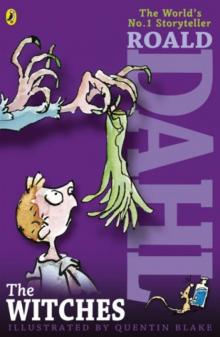 The Witches
The Witches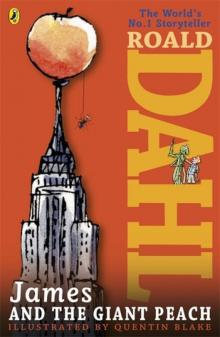 James and the Giant Peach
James and the Giant Peach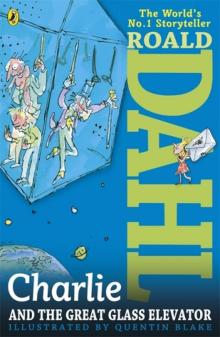 Charlie and the Great Glass Elevator
Charlie and the Great Glass Elevator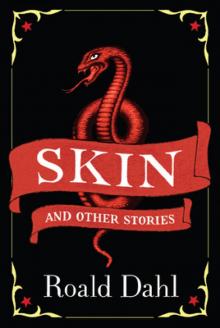 Skin and Other Stories
Skin and Other Stories Kiss Kiss
Kiss Kiss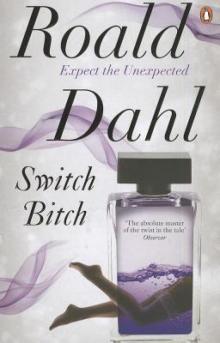 Switch Bitch
Switch Bitch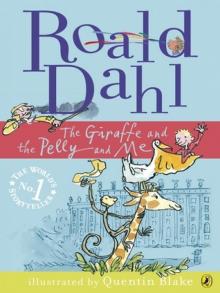 The Giraffe and the Pelly and Me
The Giraffe and the Pelly and Me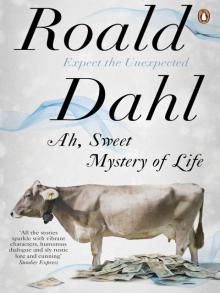 Ah, Sweet Mystery of Life
Ah, Sweet Mystery of Life Fear
Fear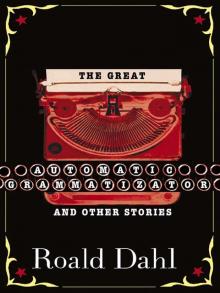 The Great Automatic Grammatizator and Other Stories
The Great Automatic Grammatizator and Other Stories Someone Like You
Someone Like You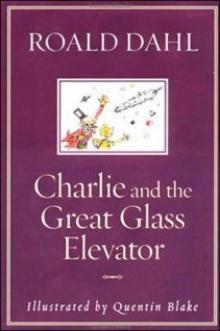 Charlie and the Great Glass Elevator c-2
Charlie and the Great Glass Elevator c-2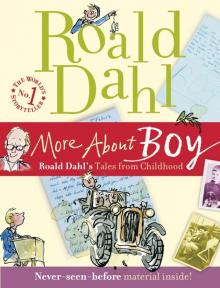 More About Boy
More About Boy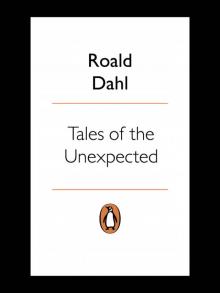 Tales of the Unexpected
Tales of the Unexpected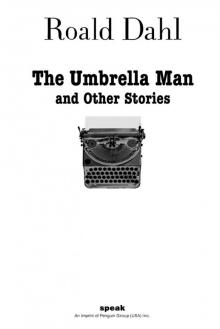 The Umbrella Man and Other Stories
The Umbrella Man and Other Stories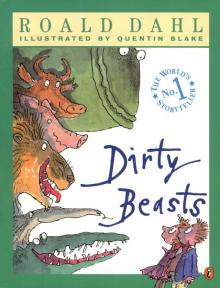 Dirty Beasts
Dirty Beasts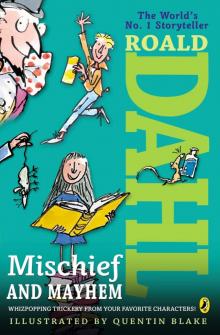 Roald Dahl's Mischief and Mayhem
Roald Dahl's Mischief and Mayhem The Collected Short Stories of Roald Dahl, Volume 1
The Collected Short Stories of Roald Dahl, Volume 1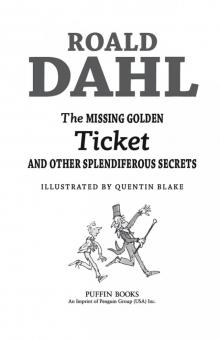 The Missing Golden Ticket and Other Splendiferous Secrets
The Missing Golden Ticket and Other Splendiferous Secrets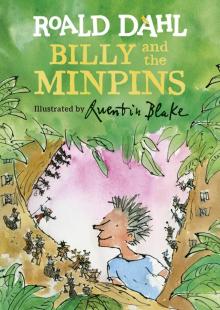 Billy and the Minpins
Billy and the Minpins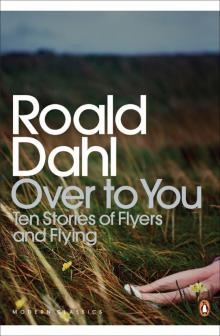 Over to You
Over to You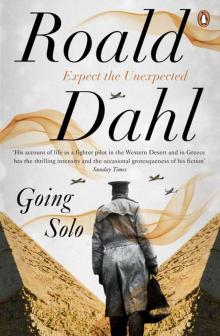 Going Solo
Going Solo Deception
Deception War
War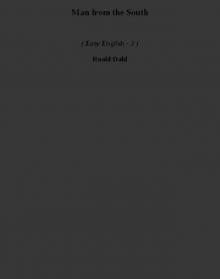 Man from the South ee-3
Man from the South ee-3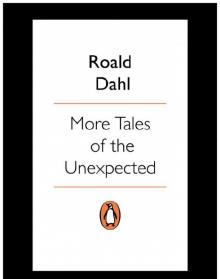 More Tales of the Unexpected
More Tales of the Unexpected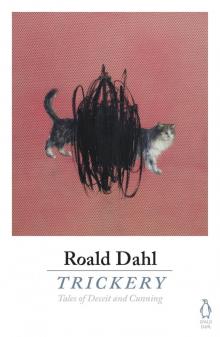 Trickery
Trickery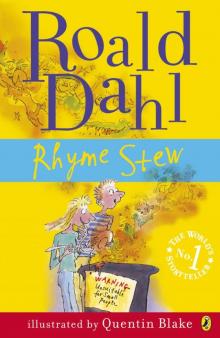 Rhyme Stew
Rhyme Stew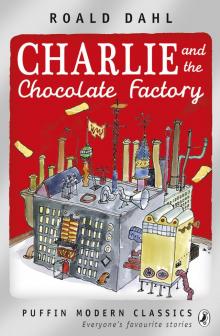 Charlie and the Chocolate Factory (Puffin Modern Classics relaunch)
Charlie and the Chocolate Factory (Puffin Modern Classics relaunch)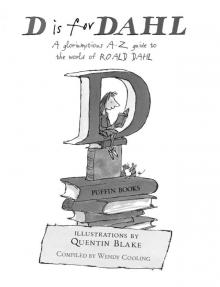 D is for Dahl
D is for Dahl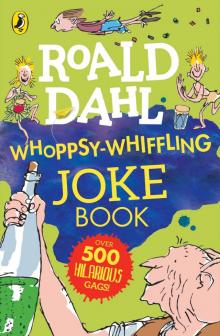 Roald Dahl Whoppsy-Whiffling Joke Book
Roald Dahl Whoppsy-Whiffling Joke Book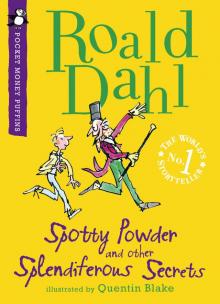 Spotty Powder and other Splendiferous Secrets
Spotty Powder and other Splendiferous Secrets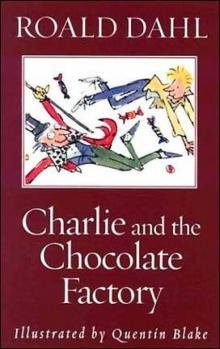 Charlie and the Chocolate Factory c-1
Charlie and the Chocolate Factory c-1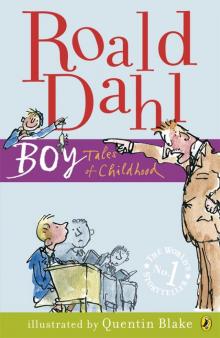 Boy
Boy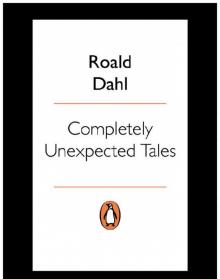 Completely Unexpected Tales
Completely Unexpected Tales Madness
Madness Innocence
Innocence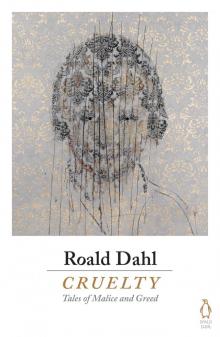 Cruelty
Cruelty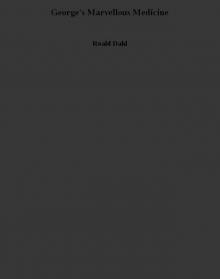 George's Marvellous Medicine
George's Marvellous Medicine